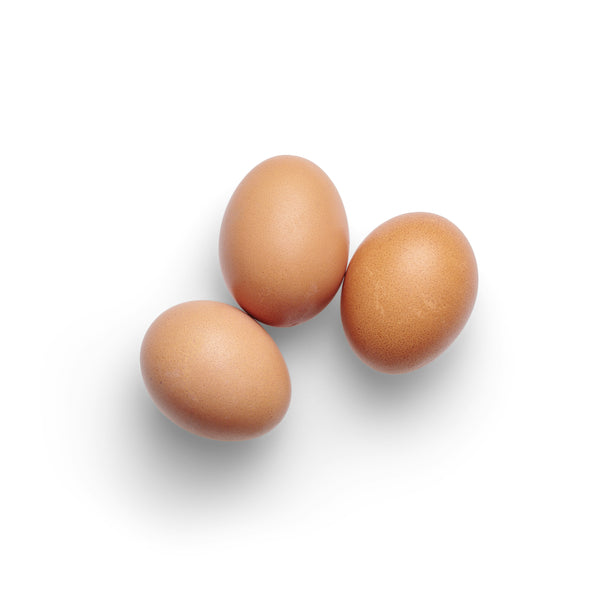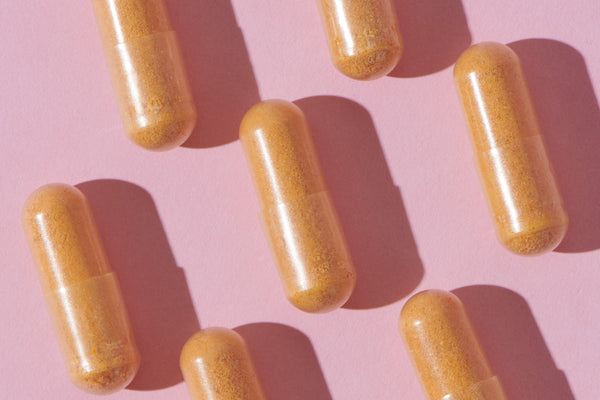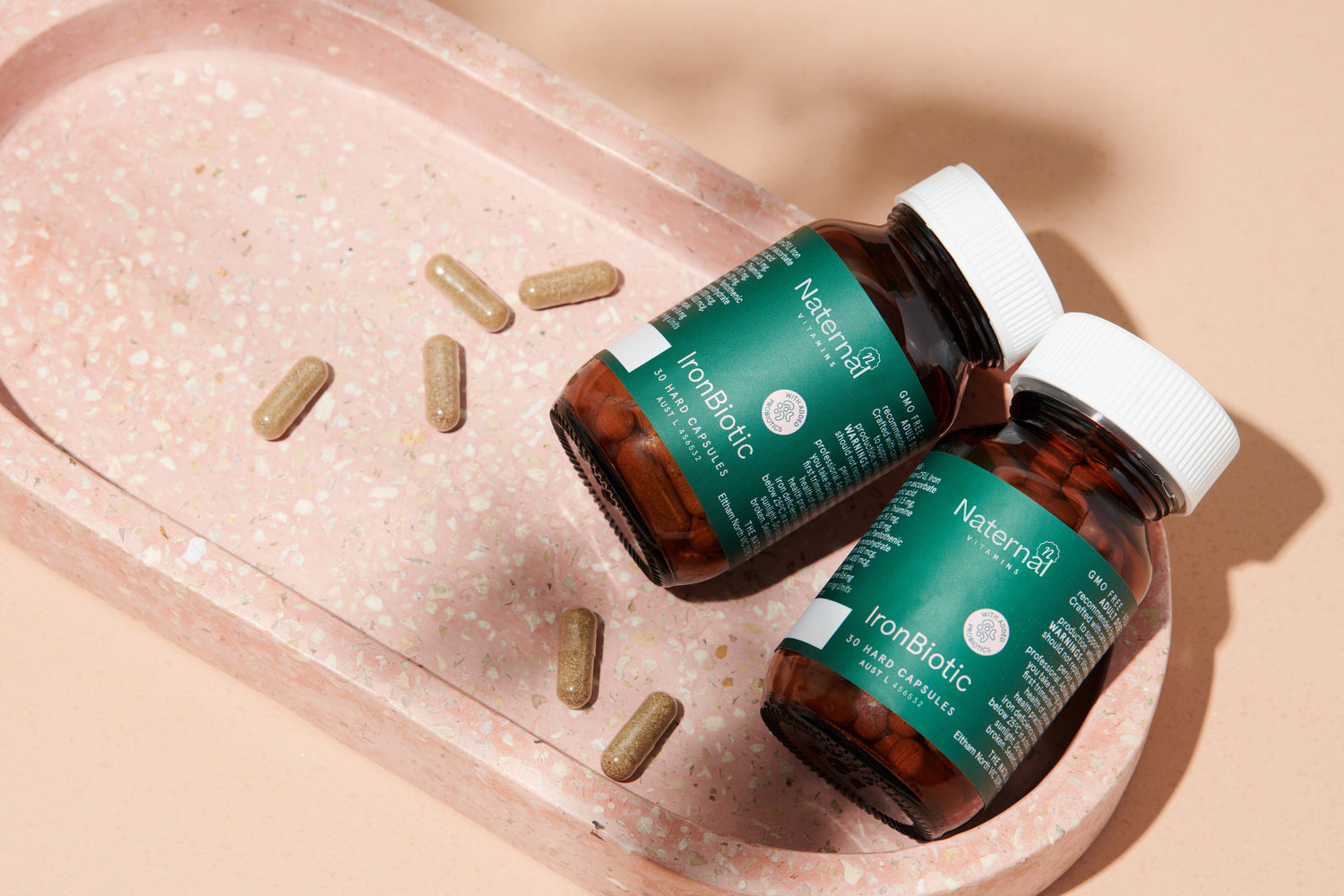Jump to:
A hormone you may never have thought to check in on - Prolactin.
In this episode I outline what prolactin does in the body, what it does to oestrogen, and how it can play a role in infertility or menstrual irregularities.
I outline what are the causes of high prolactin, and what is considered high anyway? It’s not enough to know your prolactin is high. It’s necessary to find out what is DRIVING it.
Now, if you have PCOS come on over and join me for my PCOS webinar that is coming up this week. This webinar is designed to provide an overview of the syndrome and how nutrition and lifestyle can help patients and clients living with PCOS.
Are you tired of being told that the only solution to your PCOS is the oral contraceptive pill, and that you require IVF to conceive?
Have you been searching for a natural solution to your PCOS symptoms?
If you answered yes to either of those questions, this is the webinar for you - designed specifically for women like you who want to treat their PCOS naturally, with regular cycles, with all those pesky PCOS symptoms gone. Like jawline acne, excessive hair growth, insulin resistance and so on.
Join us for a 60-minute webinar hosted by Melanie who has helped hundreds of women with PCOS achieve regular cycles, reduce insulin levels, ovulate regularly, and fall pregnant naturally.
Are we insta friends? If not, come over and say hi @thenatalnaturopath
Thank you for listening! I would loveeeee if you could give my podcast a rating and a review. It's important as it helps get this podcast into the ears of other women who need it.
TRANSCRIPT
Melanie (00:00.79)
Welcome, welcome, welcome to another episode of the Nadel and Atropath podcast. I'm your host, Melanie. And today we're going to be talking about prolactins. This is a hormone you might never have thought to check on, but it is something that I'm telling you to go and get checked ASAP. Because when we think about fertility, there are so many little tiny things that can be impacting us and also
Melanie (00:27.27)
our cycle. So even if you're not trying to conceive this can be relevant for you if you have concerns about your menstrual cycle. Now prolactin is a hormone in women that's usually associated with breastfeeding since it stimulates breast milk production but it really needs to have your attention even if you aren't breastfeeding because we all have prolactin in us even when we're not breastfeeding. So prolactin is made by our pituitary gland and like I mentioned its main role is to promote lactation.
Melanie (00:56.694)
So following childbirth, prolactin helps initiate and maintain the breast milk supply. And then if a woman doesn't breastfeed, her prolactin soon will drop down to pre-pregnancy levels, which is lower than obviously when you are still breastfeeding. Then if you do breastfeed, suckling by baby plays a really important role in the production and the maintenance of this level of prolactin. So when the baby feeds, this has an effect on the amount of prolactin secreted by the pituitary gland.
Melanie (01:24.726)
then this in turn controls the amount of milk produced. So prolactin response to breastfeeding does decrease over time. And then after a few months of breastfeeding, prolactin elevation is minimally increased above pre-pregnancy levels, so it doesn't stay high forever. But this hormone is responsible for the suppression of our menstrual cycle whilst breastfeeding, okay?
Melanie (01:49.494)
So this is what we're looking at. When we don't have a menstrual cycle because we're breastfeeding, it's all to do with prolactin and prolactin suppressing estrogen. So that's great. We need prolactin in a high amount for breastfeeding. But what happens if you're not breastfeeding? What happens if you're not pregnant? What happens if your prolactin is very high? Well, it's gonna be squashing your estrogen like a hammer, like with a hammer. So it's suppressing it.
Melanie (02:15.57)
Now having low estrogen means a whole host of hormonal issues. Think like menopause like symptoms of hot flushes, a dry vagina, low sex drive, weight gain, irregular cycles, maybe even absent periods. You could even get breast milk leakage with no baby. And then one of the biggest problems is infertility because obviously suppressing estrogen means you aren't making any cervical, you know, it's your, you've got problems creating cervical mucus, problems ovulating, problems developing.
Melanie (02:45.218)
eggs, problems, developing your uterine lining for a baby to implant on. So you know, like I am so shocked when I have someone come through the clinic and they've been trying to conceive and it's been some time and they've had a whole host of bloods and I see that prolactin wasn't even included on the blood test. It should be one of the first tests run alongside
Melanie (03:10.026)
standard female hormones, but it's an additional hormone that needs to be written on the feral and often female hormones are the only ones getting checked. So a sign that you could have high pre-lactin like would be those symptoms, but if you notice on your hormonal test, your blood test, if your estrogen looks unusually low, it might also indicate you need to be checking your prolactin.
Melanie (03:36.118)
But of course, having estrogen suppressed by high prolactin would absolutely mean fertility troubles, like I mentioned, egg development, egg release, endometrial lining thickness, and then that's a vical mucus production. And so if you don't have the right amount of estrogen, these key events starting to occur properly. So if you have any fertility or hormonal concerns, please get your prolactin checked. Now onto the causes. So.
Melanie (04:00.846)
I'm going to go through the most common causes and then the most rare causes. Okay. But I want to go through all the causes so that you're really well versed in these now I'm going to actually quickly mention what is high. Okay. So anything above 600 on a blood test and that's M I U slash L is high naturopathically speaking. Okay. A doctor may flag that.
Melanie (04:25.878)
but they'll definitely flag anything above a thousand. Anything above a thousand on a blood test usually requires an MRI, okay? And I'll go through why. So a normal reading for prolactin is anything below 600. M-I-U slash L, that's the reference there, the measurement. So the most common causes of hyperlactin is we've got high stress, okay? So high cortisol increases prolactin.
Melanie (04:56.054)
Hypothalamic amnorrhea, this is the over-exercising slash under-eating hormonal condition. This one of the hallmarks of hypothalamic amnorrhea is hyperlactin levels.
Melanie (05:09.102)
High TSH levels or underactive thyroid can increase prolactin and so can PCOS. Okay, so it's hard in itself because just seeing high prolactin doesn't tell you why it's happening and when you really need to understand why it's happening to treat it properly. So when you do find high prolactin under blood test, you can't just like guess and go, okay, it's this so I'm going to do that. You really need to understand what's the root cause so we can get resolution.
Melanie (05:38.038)
So more rare causes would be a prolactinoma, which is a tumor on the pituitary gland. Hence why we need an MRI if we have a prolactin level over a thousand. It's almost always benign though. So I don't want to scare anyone, but of course it is scary to think there's something going on in our brain. So that's why doctors will be checking with an MRI. Other causes can be drugs and medications. So anything to do with estrogen.
Melanie (06:03.146)
And also some types of antidepressants, so tricyclic antidepressants can increase prolactin. So, and also drugs that block the effect, any drugs that block the effect of dopamine can also increase your prolactin. So if you do find high prolactin, like I mentioned, it is important to understand, okay, what medications am I taking? And have any of these been shown to increase prolactin?
Melanie (06:30.934)
Because if it's that, well, then that's an easy fix, isn't it? Like I said, it's not enough to just know that your prolactin is high. It is necessary to find out what is driving it. Because if we find, like I find in a client, okay, you've got hyperlactin, what's happening? Where is it coming from? It's looking like hypothalamic amnorrhea. The treatment for this is rectifying your calorie intake and your calorie output, like your exercise levels, okay?
Melanie (07:00.894)
and getting that hyperthalamic ovulation switch to turn on and getting the body to feel very, very safe to regularly ovulate. This will naturally lower prolactin levels. Imagine if I gave that person some herbs, because there are herbs that have been shown to lower prolactin in certain circumstances, but only depending on what cause it is. But we've got chastery and rhodiola. They've got some really good research.
Melanie (07:30.206)
Um, you know, if for example, it was an underactive thyroid causing your pre-lactin levels to be high, I wouldn't want to be going and giving you chase tree when actually what I need to do is speed up your thyroid, you know? So if it is also severe enough, an endocrinologist can prescribe medication to help. And I've seen that happen a few times in my clinic as well. So there are options. Absolutely. Now that was such a quick tip episode and I'm all finished with it. But don't rem-
Melanie (07:58.338)
Don't forget if you have any concerns, always get a blood test, talk to your doctor. You can book an appointment with us. We do one-to-one consultations in our clinic for women where you can bring all of your blood tests and we can decipher what you need to do for your menstrual cycle or your fertility. And I also wanted to mention as well, I have a webinar that I am releasing. So Friday, May 26th at 10 a.m. is my polycystic ovarian syndrome webinar.
Melanie (08:28.374)
So this webinar is designed to provide an overview of PCOS and how nutrition and lifestyle factors can help my clients live with PCOS. It's for those people that have been tired of told that your only solution to your PCOS is the pill or that you probably need IVF to conceive. And so there is women that really wanna find a natural solution to their PCOS symptoms and actually rectify this long-term. So what you can expect to learn through my webinar.
Melanie (08:56.862)
is the underlying causes of PCOS and how to address them with lifestyle diet, nutritional and herbal supplementation, the best blood tests to get and the optimal levels of each test talking about how to diagnose PCOS with, we're looking at ultrasounds and blood tests, the different types of PCOS because there's been found to be four different types of PCOS and what treatment might look like for each of those because they're different. The role of nutrition in managing PCOS and foods to be eating and avoiding.
Melanie (09:26.314)
and the benefit of certain supplements for PCOS and what the research says, and then looking at tracking your menstrual cycle and how to identify ovulation when you've got PCOS. So it is a very, very thorough one, but after the webinar, you'll gain the knowledge and tools you need to take control of your PCOS and achieve your optimal health. And that might look like falling pregnant for you. Now I've got a link in the show notes to the webinar, so please don't miss out because going through the webinar live is your best chance of asking any questions that you have, but of course I'm always available.
Melanie (09:56.458)
via email to ask any questions after the webinar is done. All right, well, I will see you next week. Have a lovely week. Bye.






